

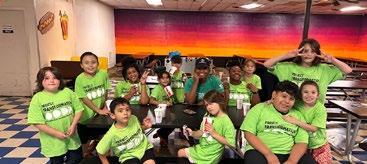
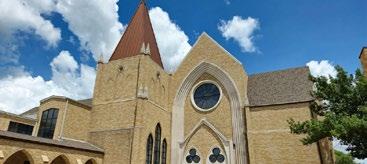
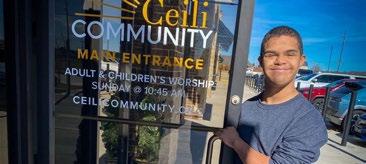
136
4,220 children served college members partner organizations meals served books read sites
22
4
34
8,121







136
4,220 children served college members partner organizations meals served books read sites
22
4
34
8,121

→ 70 percent of children IMPROVED their reading scores.
→ 96 percent MAINTAINED their reading score, avoiding the “summer slide.”
→ Children at PT-Tulsa read oneon-one with a volunteer for 30 minutes each day.
→ 74% of Oklahoma’s fourth graders read below proficiency.
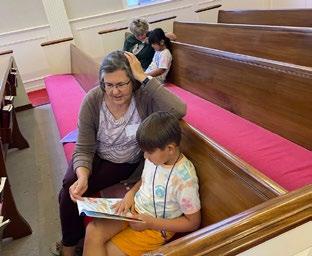
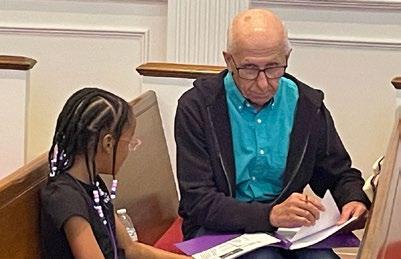



→ Volunteers from many churches and organizations dedicate time and resources to read with children, offer special events, help with daily activities, and support college members.

→ Children attend PT four days a week from 9 AM - 3 PM throughout June and July.
PT-Muskogee campers enjoy daily activities including, art, STEM, and recreation - all while working on their reading.
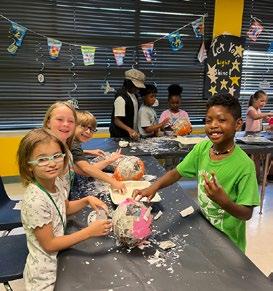

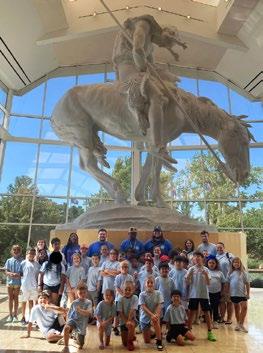
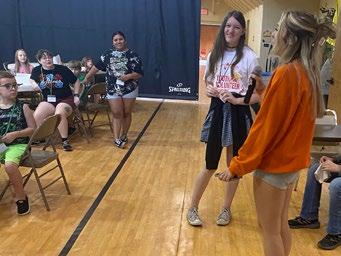

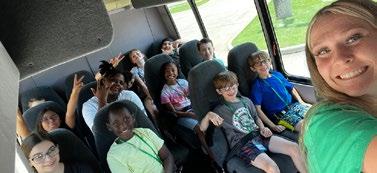

→ Children participate in fun and enriching activities each week of camp. Each site hosts two family nights. PT - El Reno campers visit the National Cowboy & Western Heritage Museum and bowl with their families during a family night.
PT-OKC campers enjoy skating while PT-Muskogee campers prepare to leave for a field trip.

→ OKUMC churches host PT and the local Site Supervisor is instrumental in making sure their site runs smoothly.
→ Emily Walker & Amy Neathery, El Reno Wesley UMC
→ DeRon Gabriel - Tulsa Southern Hills UMC / New Haven UMC
→ Barbara Kent and Lisa Dotson - Muskogee St. Paul UMC
→ Michele Edwards - OKC Southern Hills UMC
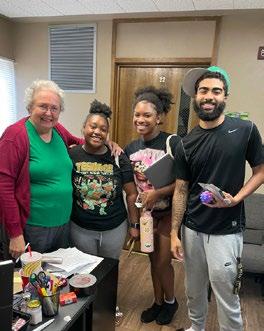
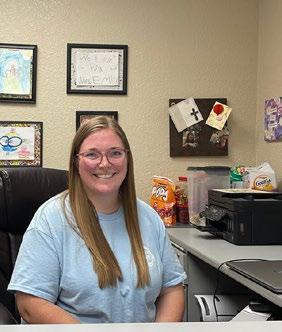
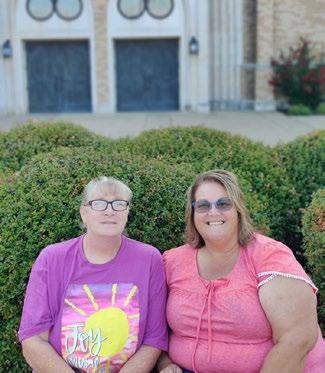
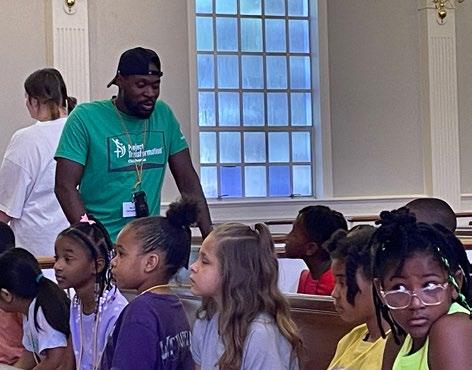

CONTACT US
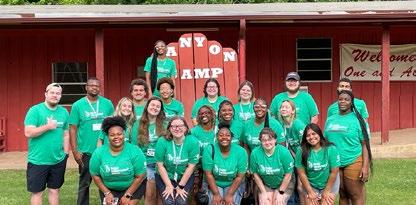

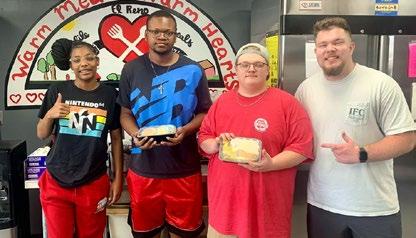
→ Children receive a healthy breakfast, lunch, and snack each day.
→ Children attending PT-OKC get ready for lunch.
→ One in four children in Oklahoma are at risk of hunger.
→ College students serve at each site and lead the camps each day.
→ In addition to professional and personal growth, each college student receives free housing and most meals. They also receive a $3500 living stipend and a $1459 college scholarship to the institution of their choice through an AmeriCorps grant.
→ College students also serve in their community throughout the Summer.
→ PT Tulsa at Infant Services, PT-OKC at the Regional Food Bank, PT-El Reno at Mobile Meals, and PT-Muskogee at Catholic Services
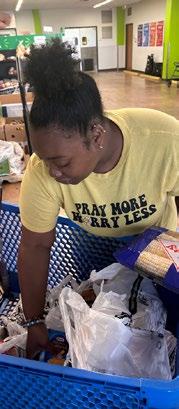


Project Transformation is growing to serve more children and we value your help in this important work:
→ Donate to Project Transformation - through your local UMC or by going to the website.
→ Volunteer your time or resources at a Summer 2025 site (a list of 2025 host churches will be published January 2025).
→ Follow us on our Facebook page.
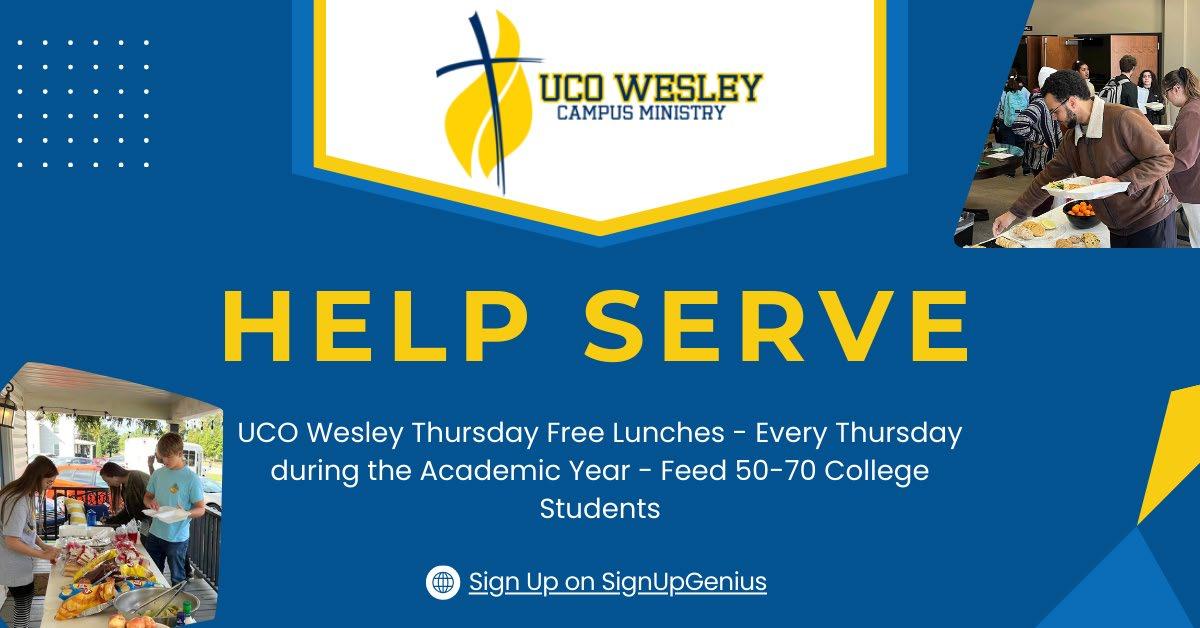
As you have heard during the last two annual conference sessions, the Oklahoma Conference is embarking on five strategic dreams to transform our witness throughout this state. One of those dreams is Healthy Clergy Leading Healthy Churches.
According to a recent survey from the United Methodist pension board, over the past decade, the number of clergy reporting “very good” or “excellent” health has seen a steady decline. This is significant, as selfreported health is an important indicator of overall health status. Insights on the overall impact of the COVID-19 pandemic on well-being showed more than half of the clergy reporting adverse effects on social and emotional well-being in particular. You can read more from the Wespath report here.
It takes healthy clergy to lead churches to a healthy place. It takes a partnership between clergy and lay leaders to ensure this is happening. To that end, we are offering a six month “Healthy Church Academy” for lay leaders and S/PPRC chairs and members. Though the academy is geared toward those committees, any church leaders – including clergy – are welcome to attend. It will be led by Rev. Dr. Ron Bell, Director of Healing and Resilience for Discipleship Ministries at the Upper Room.
Dr. Bell is a noted leader and author of four books is passionate about emotional formation and the
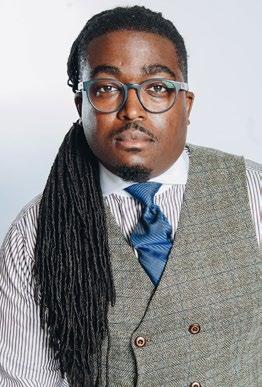
intersection of faith and mental health. Bell has also served in the past as both a new church plant pastor, Director over Congregational Development and SBC 21 (Strengthening the Black Church for the 21st Century) for the Peninsula Delaware Annual Conference, as well as the pastor of traditional churches.
The Academy will be held online via Zoom once per month, beginning in September and continuing through February. The sessions will be one hour in length on Monday evenings. Dates include September 16, October 21, November 18, December 16, January 13 and February 17. Bishop Laura Merrill will be a guest on the first session.
All participants will also receive a copy of Rev. Dr. Bell’s book, “Stories for Another Day: A Journal.”
There is no cost to participate, but pre-registration is required. You can register here. After registration, you will receive a Zoom link for participation in this exciting and important course offered to you in partnership with the Upper Room.
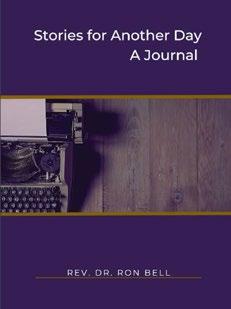

University UMC gathered to spruce up the TU Wesley Foundation. With this many volunteers, an all-day job took 1.5 hours! Great job, UUMC! Photo by

BY THE REV. RYAN DUNN
Nearly 100% of churches consider themselves inviting to new people wishing to get involved and join their congregations. But often we consider our faith communities inviting without considering what we are truly inviting people to when we open our church doors. We may feel like we’re offering communities of connection and discipleship while we unknowingly put up barriers that keep seekers at bay.
As United Methodist leaders, it is vital that we consider how we remove the barriers that keep spiritual seekers from encountering the value and connection available in our congregations while we create clear pathways to engagement for newcomers to our communities.
When many of us talk about “inviting people to church” we are implicitly talking about inviting people to a worship service. The worship experience is the central event in the community rhythm for many churches–but it is not always the most sought-after experience for someone who has not been engaged in church.
If the defined goal of our invitations is to get people to show up to worship, then we might be fighting a steeply uphill battle. Today’s spiritual seekers are often
looking for more than a Sunday service; they crave authentic community, meaningful connections and opportunities to engage with their faith in practical and impactful ways. It is not obvious to them how

traditional worship services meet these deeper needs. Therefore, it’s essential for us to rethink what we are inviting people to when we ask them to come to our churches. Are we offering a space where questions are welcomed and doubts can be expressed? Are we providing avenues for personal growth, social justice, and community involvement? To truly resonate with seekers, our invitations need to extend beyond the pews and into the heart of what it means to connect in a meaningful community.
At the risk of sounding consumeristic, I would suggest that we focus our invitations on the value our congregations can deliver
to spiritual seekers. Namely, we offer connection, a sense of personal value and feelings of united purpose.
There are several barriers our religious communities unintentionally assemble that keep spiritual seekers from hearing our invitations and from feeling the inclusiveness and acceptance our congregations offer.
First, we unintentionally make it difficult to get to know our churches. In today’s environment, information is easily accessible on demand. We can know a lot of things about an organization or establishment before we ever set foot in their facilities or meetings.
In my family, before we visit a new restaurant we generally do some digital research: we view the digital versions of their menu, look at pictures to see what kind of environment the restaurant offers and we read some customer reviews. I doubt we’re alone in this practice. And I doubt that we’d be alone in admitting we often do similar research when considering whether or not to visit a new store or view a new TV show.
Have you ever thought about if this kind of information might be available to someone casually researching your church? We don’t have menu items to peruse, but we are able to let people know what it is that we offer and what they can expect when paying us a visit.
In order to remove the barrier of know-ability, we need to make information available about how
new people can sample our community and how they can ultimately become a part of it. We also need to paint a realistic picture of what our community looks like in practice–this means sharing authentic images of our community (and not hiding behind stock photos to fill out our websites and social media pages). Also, do we invite our members to share online what they find valuable about our churches?
Another barrier we assemble relates to how we speak about the future. The last several years have been challenging for our United Methodist connection. The challenges will continue. As we speak about those challenges are we speaking with a sense of foreboding and fear or are we communicating a sense of hope and optimism for the future? Spiritual seekers who visit our churches are unlikely to make a commitment to membership if congregational leaders speak more
favorably of the past than they do about the future.
Lastly, we assemble a barrier when we haven’t detailed a clear path for new people to engage. Are we actually ready to receive new people? If our process of inclusion and involvement is not clearly defined, then we risk leaving seekers feeling like outsiders. Do we have membership classes to share? Can we offer mentorship programs? Is there a way to ask pastors and leaders questions? Answering these questions about a pathway of inclusion will help to remove the barrier of unintentionality.
It might help to put yourself in the shoes of someone new to your community of faith. How would you find out about your church? What first steps would you take in order to get involved? It would also be good to invite your
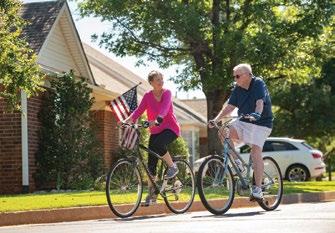
current members to share their stories about the church and their pictures. Ask them to share reviews on Google and Facebook. Have them provide pictures of your congregation in action for use on your website and social media platforms.
For more ideas on inviting seekers to your congregation and defining a path to membership, check out our “Welcoming and Invitation” section on ResourceUMC–your one-stop spot for resources for leaders in the United Methodist Church.
The Rev. Ryan Dunn is Minister of Online Engagement for United Methodist Communications. Ryan manages the digital brand presence of Rethink Church, co-hosts and produces the Compass Podcast, manages his personal brand, and obsesses with finding ways to offer new expression of grace.

Life at Epworth Villa is all about freedom. Freedom from home maintenance and chores. Freedom from having to drive all over town. Freedom from worrying about future needs. And when you’re free to live your best life, it’s amazing the joy that each day brings. Experience the freedom you deserve and check out our spacious cottages and beautiful apartments at EpworthVilla.org.
The Ministry Center will be closed Monday, Sept. 2, in observance of Labor Day. We are grateful for the labor of all who work to keep things running. For Labor Day resources, click here.
Sponsor a Thursday Lunch at the TU Wesley!
Help us feed college students!
If your church is looking for a way to support young people, consider sponsoring a Thursday lunch at the TU Wesley this fall! There’s two ways to provide a meal:
Bring a meal!
If your church wants to cook and serve a meal, we request a main dish, a vegetarian dish, and a dessert. We do have a few students who cannot eat gluten, and if that can be accomodated, that would be great! The students also love fruits and veggies. Wesley provides all the cutlery, cups, napkins, and plates as well as salad and lemonade/water.
Have a lunch catered!
If you are not in the Tulsa area (or you’re not a fan of cooking!) and would like to have a meal catered, please contact our Director, Rev. Emily Robnett, at emilyrobnett@wesleytu.org.
To help, sign up here

Share your event or job opportunity in the Contact For consideration, email your listing to editor@okumc.org.